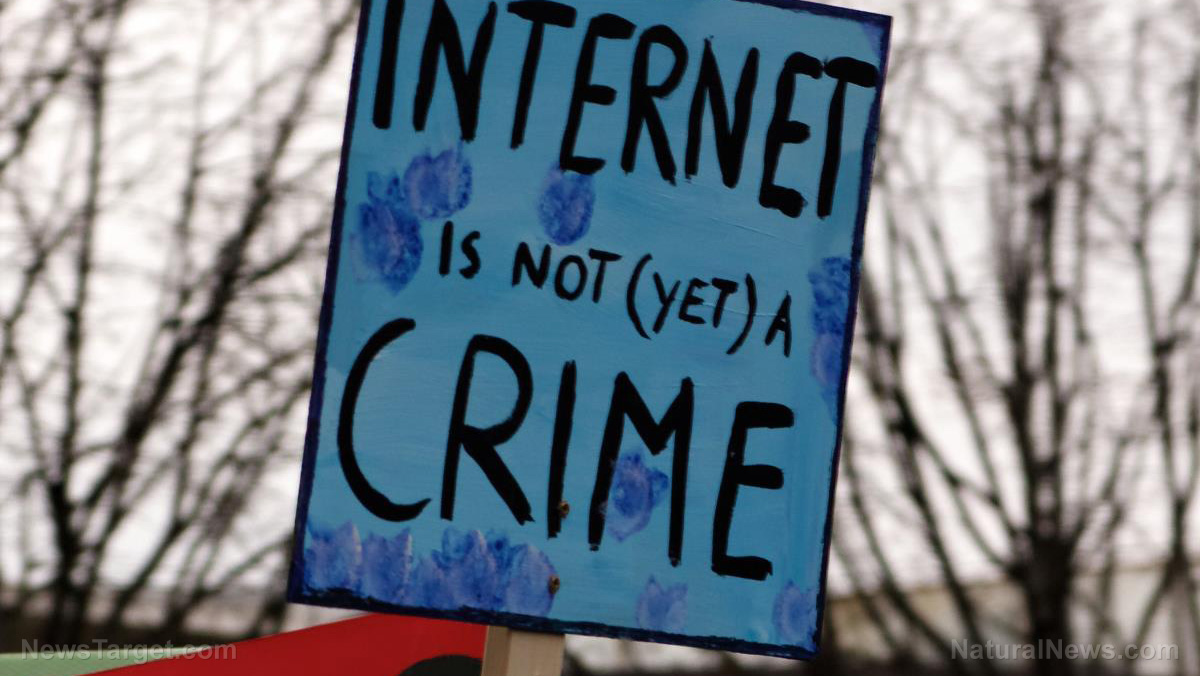BitChute, FreeStartr targeted for FINANCIAL CENSORSHIP by Stripe payment processor – “tech Apartheid” rising
06/25/2018 / By Isabelle Z.

If you don’t like the way a business operates, you are always free to start your own – at least in America. However, some of the services that companies in the tech space rely on are doing something very un-American by making life difficult for those businesses whose politics they disagree with.
FreeStartr was set up to help people raise money for creative, social, journalistic and charitable projects, particularly those that have been censored or banned on other platforms for exercising free speech. Widely viewed as a free speech alternative to Patreon, which has discriminated against conservative voices in the past, its star had been rising – until payment processor Stripe put the brakes on it for political reasons
The CEO of FreeStartr, award-winning investigative journalist Charles C. Johnson, expressed his disappointment in the decision, writing an open letter on his website about the problem of “tech apartheid.” He said that his company had record low chargebacks, so Stripe’s move was clearly a political one – especially when you consider that other companies whose accounts were also suspended at the same time happened to be created by supporters of Trump as well.
Johnson said that FreeStartr.com stands for the Bill of Rights, something that he feels the founders of Stripe, as non-Americans, may not fully grasp.
He wrote: “Stripe seems to be deliberately shutting down businesses whose politics it doesn’t like. Political orientation is a protected category in California. There have been cases brought against businesses that refuse to serve conservatives or liberals. Why not Stripe? If Stripe’s move isn’t illegal, it is certainly fraudulent.”
Johnson feels his firm and the others were targeted by Stripe’s Edwin Wee, who has worked on the campaigns of democrats like of Joe Sestak and Michael Bloomberg.
YouTube alternatives being targeted
Another firm that found itself on the receiving end of this financial censorship at the hands of Stripe was peer-to-peer content sharing service Bitchute, an alternative to YouTube. In their cancellation notice, Stripe said that they’re “politically neutral” but that their financial partners objected to the business model of Bitchute. Bitchute founder Ray Vahey pointed out that their account was in good standing and that they had not broken any rules or laws, nor had they been the subject of any customer complaints.
It’s not surprising to see people creating YouTube alternatives given the video streaming site’s horrible track record when it comes to demonetizing and even outright deleting conservative channels. They’ve even gone after Natural News in the past. Mike Adams, the Health Ranger and Natural News founder, has started his own alternative to YouTube in response, Brighteon.com, and it’s planning to launch in July. Unlike YouTube, it will welcome free speech, independent science, and independent journalism.
It doesn’t stop there, by the way. There are lots of examples of financial institutions shutting out those whose political beliefs appear to be different from their own. Intuit has now stopped processing payments via credit card on gun-related sales even if they don’t directly involve firearms, with small businesses finding sales of items like coffee mugs, t-shirts and even gun safety classes being stopped.
If you’re an alternative startup, you’d better watch out: The big technology companies won’t hesitate to wield their power to silence you if your message is different from theirs.
Sources for this article include:
Tagged Under: Censorship, computing, discrimination, e-commerce, finance, First Amendment, free speech, FreeStartr, online payments, oppression, Real Video, tech, technocrats, Tyranny, YouTube, YouTube alternatives



















